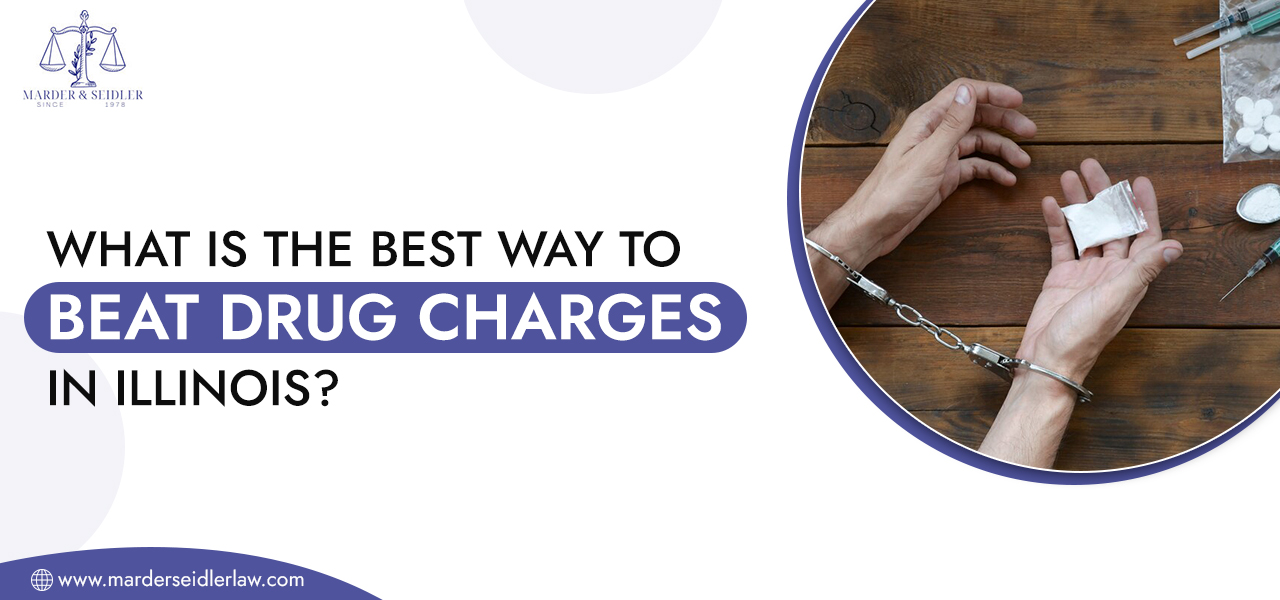What Is The Best Way To Beat Drug Charges In Illinois?

When facing drug charges in Illinois, it’s crucial to understand that the outcome of your case can have long-lasting consequences on your life, including potential jail time, hefty fines, and a permanent criminal record. These charges can be serious, particularly if you are accused of possession, trafficking, or manufacturing controlled substances. However, a skilled criminal lawyer in Schaumburg can use various strategies to build a solid defense, potentially reducing or even dismissing the charges against you. Learn more about how to beat drug charges below.
Why Hiring a Schaumburg Criminal Defense Lawyer is Critical?
Drug charges are complicated, and the legal landscape in Illinois is nuanced. From understanding the Illinois Controlled Substances Act to being familiar with the procedural aspects of criminal defense, it is not advisable to face these charges alone. A knowledgeable Schaumburg criminal defense lawyer will know the ins and outs of the law and can guide you through every stage of the legal process. This includes investigating the circumstances of your arrest, gathering evidence, negotiating with prosecutors, as well as representing you in court.
Common Defense Strategies for Drug Charges in Illinois

There are various defense strategies that a Schaumburg Criminal Lawyer may employ to challenge drug charges depending on the specifics of the case, such as the type of drug involved, whether it was found in your possession, or if law enforcement procedures were followed properly. Below are a few of the most common defenses:
1. Unlawful Search and Seizure
One of the most powerful defenses in drug cases is the claim that law enforcement officers violated your constitutional rights during the search and seizure process. The Fourth Amendment of the U.S. Constitution protects individuals from unreasonable searches as well as seizures. If it can be proved that the police did not have a valid warrant or probable cause to search your person, home, or vehicle, evidence obtained in that search may be deemed inadmissible in court. This could lead to a dismissal of the charges or a significant reduction in the severity of the charges.
2. Lack of Knowledge or Intent
In many cases, the prosecution must prove that the defendant had knowledge of the drugs and intended to possess or distribute them. If you were unaware that drugs were in your possession, or if you had no intent to distribute them, your Schaumburg criminal defense lawyer could argue that the prosecution cannot meet the burden of proof required for a conviction. For example, if drugs were found in a vehicle you were driving but you did not know they were there, your lawyer may argue that you did not knowingly possess them.
3. Entrapment
Entrapment occurs when law enforcement officers induce or coerce someone into committing a crime that they otherwise would not have committed. If you were set up by the police or pushed into committing a drug offense by an undercover officer. In this scenario, the defense must show that law enforcement used improper tactics to persuade you to engage in illegal activity.
4. Possession for Personal Use
Illinois law distinguishes between possession of a controlled substance for personal use and possession with the intent to distribute. If the amount of drugs found in your possession was small and there was no evidence of intent to distribute. Additionally, this could lead to a reduction in charges or even a dismissal, particularly if the evidence does not support trafficking or manufacturing claims.
5. Inconsistent or Weak Evidence
If the prosecution’s evidence is weak, inconsistent, or obtained through improper means, your Schaumburg defense lawyer can cast doubt on the case against you. For example, if the drug evidence is not properly linked to you, or if the chain of custody is broken (meaning the evidence may have been tampered with), your attorney may argue that the evidence should be dismissed.
Understanding Illinois Drug Laws
The Illinois Controlled Substances Act classifies drugs into five different schedules, ranging from Schedule I (drugs with no accepted medical use and a high potential for abuse) to Schedule V (drugs with a lower potential for abuse and accepted medical uses). Depending on the schedule, the penalties for drug offenses can vary greatly.
For example, possession of less than 15 grams of heroin, methamphetamine, or cocaine can lead to a felony conviction with penalties ranging from probation to 3-7 years in prison. For larger amounts or cases involving trafficking, the consequences can be even more severe, including extended prison sentences.
Conclusion
Drug charges in Illinois are a serious matter that require professional legal representation. Whether you are facing charges related to possession, trafficking, or manufacturing, a skilled Schaumburg criminal defense lawyer can provide the expert guidance needed to navigate the complexities of Illinois drug laws to beat drug charges. From challenging unlawful searches to proving lack of intent or presenting inconsistencies in evidence, choose Marder & Seidler experienced attorneys who work tirelessly to protect your rights as well as seek the best possible outcome for your case. If you find yourself facing drug charges, don’t wait—contact us at 847-985-6767 as soon as possible to discuss your options and begin building your defense strategy to beat drug charges. We are available 24/7 for you!
